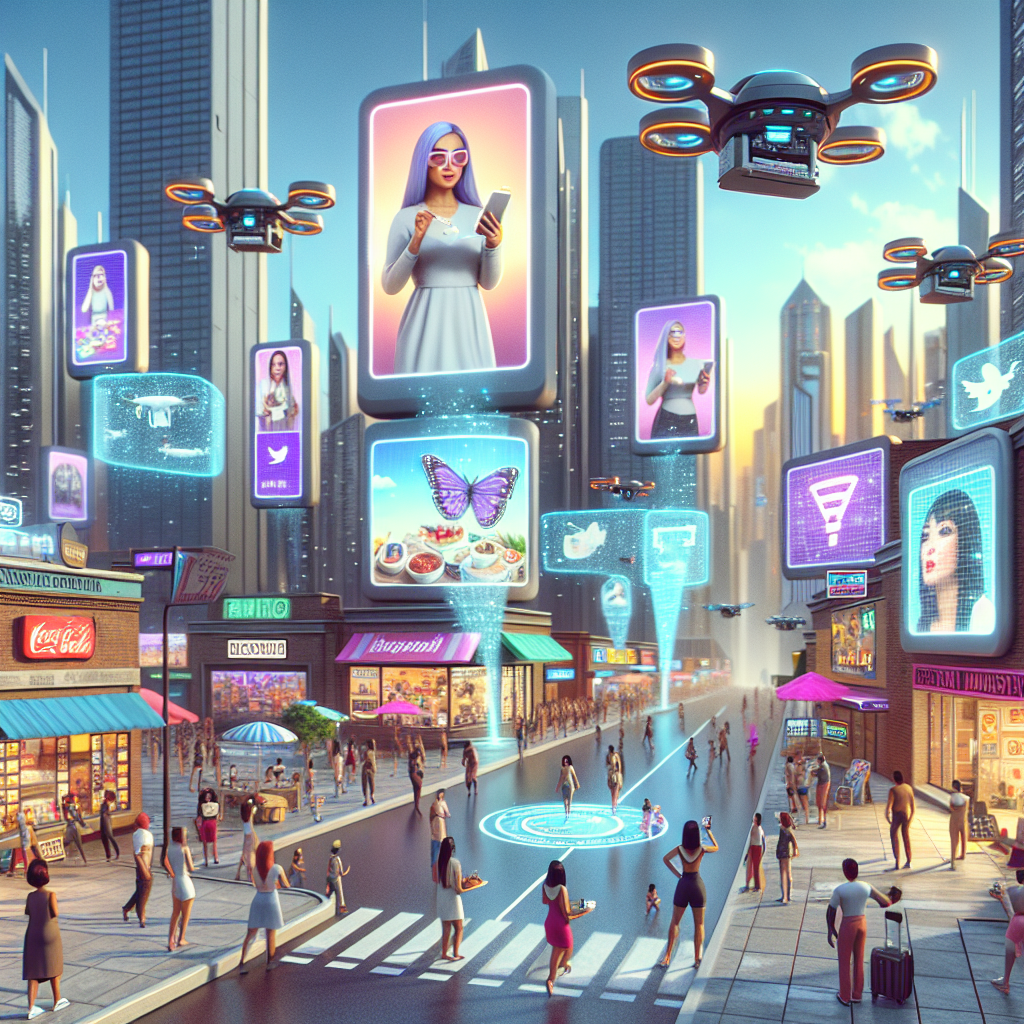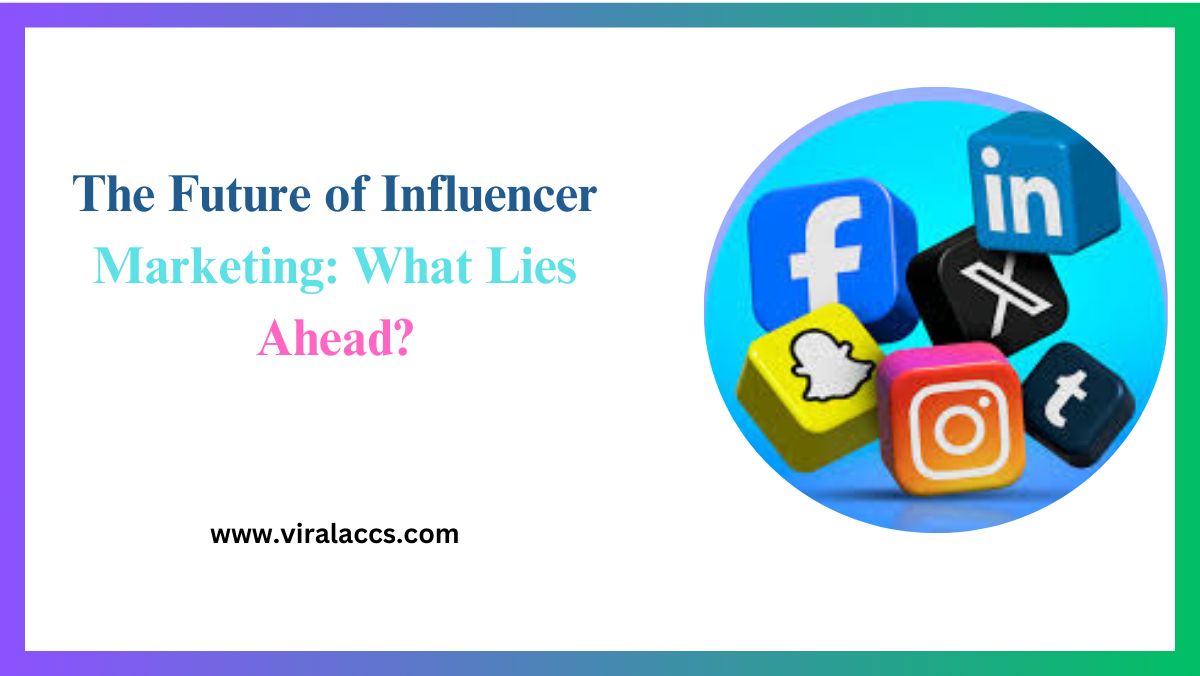Influencer marketing has rapidly become one of the most powerful tools in the digital marketing toolkit. From Instagram stars to YouTube moguls, influencers hold significant sway over their audiences’ buying decisions. But as technology evolves and consumer behaviors shift, what does the future of influencer marketing look like? This blog post dives deep into emerging trends, challenges, and predictions for the next five years.
Current State of Influencer Marketing
- The Power of Influence
In the past decade, influencer marketing has skyrocketed. Brands have found that collaborating with individuals who have large social media followings yields impressive returns on investment. Influencers can create authentic content that resonates with their followers, making it a potent way to build brand awareness and drive sales.
- Platforms and Reach
Instagram, YouTube, and TikTok are among the most popular platforms for influencer marketing. Each platform offers unique opportunities for brands to reach diverse audiences. Instagram is great for visual storytelling, YouTube for long-form content, and TikTok for short, engaging videos.
- Measuring Success
Marketers have developed sophisticated metrics to gauge the success of influencer campaigns. Engagement rates, click-through rates, and conversion rates are just a few of the key performance indicators (KPIs) used to measure effectiveness. The ability to track and quantify these metrics has made influencer marketing more accountable and attractive to brands.
Emerging Trends in Influencer Partnerships
- Micro-Influencers on the Rise
Micro-influencers, those with smaller but highly engaged followings, are becoming increasingly valuable. Brands are recognizing that these influencers often have more authentic relationships with their followers, leading to higher engagement rates. Collaborating with micro-influencers can also be more cost-effective than partnering with mega-influencers.
- Long-Term Collaborations
One-off influencer campaigns are giving way to long-term partnerships. Brands are finding that continuous collaborations foster deeper connections with an influencer’s audience. Long-term relationships allow influencers to integrate products more naturally into their content, enhancing authenticity and trust.
- Diversification of Platforms
While Instagram and YouTube remain staples, newer platforms like Clubhouse and Twitch are gaining traction. Brands are experimenting with these platforms to reach niche audiences. For example, Twitch offers opportunities to engage with gaming communities, while Clubhouse allows for real-time, audio-based interactions.

Challenges Facing Influencers
- Authenticity Concerns
As influencer marketing becomes more mainstream, audiences are becoming wary of inauthentic content. Followers can easily spot when an influencer is promoting a product solely for monetary gain. This skepticism can erode trust and diminish the campaign’s effectiveness.
- Algorithm Changes
Social media platforms frequently update their algorithms, affecting how content is distributed and viewed. These changes can disrupt influencers’ reach and visibility, making it challenging to maintain engagement levels. Staying adaptable and updated on these changes is crucial for sustained success.
- Regulatory Scrutiny
With the rise of influencer marketing, regulatory bodies are paying closer attention. Influencers are now required to disclose sponsored content clearly. Non-compliance can result in legal repercussions and damage to reputation. Navigating these regulations is a growing challenge for both influencers and brands.
Predictions for the Next Five Years
- AI-Powered Influencer Selection
Artificial intelligence (AI) will play a significant role in influencer marketing. AI algorithms can analyze vast amounts of data to identify the most suitable influencers for a brand. This technology will streamline the selection process, ensuring more effective and targeted collaborations.
- Increased Focus on Niche Markets
Brands will increasingly target niche markets through influencer partnerships. By focusing on specific interests and communities, brands can create more personalized and relevant content. This approach will enhance engagement and drive better results.
- The Rise of Virtual Influencers
Virtual influencers—computer-generated personas—are set to become a significant trend. These influencers can be tailored to fit a brand’s image perfectly and are immune to scandals or controversies. While virtual influencers may lack the authenticity of real individuals, their controlled and consistent messaging offers unique advantages.
Sustainability in Influencer Collaborations
Sustainability is becoming a cornerstone of influencer marketing. As environmental and social issues gain prominence, both brands and consumers are increasingly prioritizing sustainable practices. Influencers advocating for eco-friendly products or socially responsible brands resonate with conscious consumers and enhance a brand’s image.
This shift towards sustainability extends beyond products to include ethical marketing practices, ensuring transparent and honest communication with audiences. Brands aligning themselves with influencers who champion sustainability can strengthen their credibility and appeal to a growing segment of environmentally-aware consumers, thus positioning themselves favorably in the changing landscape.
The Evolution of Content Formats
The way content is being created and consumed is continually evolving. Influencers are tapping into immersive technologies such as augmented reality (AR) and virtual reality (VR) to create more engaging and interactive content. These technologies offer audiences new ways to experience products, providing a more in-depth view that goes beyond traditional formats.
Additionally, live streaming is gaining popularity, offering real-time interactions that can foster a sense of community among followers. Keeping up with these evolving formats will be vital for both influencers and brands to maintain relevance in a fast-paced digital ecosystem.
Integration of Data Analytics
Data analytics will increasingly influence influencer marketing strategies. With an abundance of data generated through social media interactions, brands can gain deeper insights into consumer behavior and preferences. Leveraging these insights allows for more informed decision-making, enabling brands to tailor their content and strategies to better meet audience demands.
Advanced analytics tools can also provide real-time feedback on campaign performance, allowing for agile adjustments that optimize outcomes. As data privacy becomes a growing concern, marketers will need to balance data utilization with ethical practices, ensuring transparency and building trust with audiences. Overall, the integration of data analytics presents a powerful opportunity to enhance the precision and effectiveness of influencer marketing efforts.
Micro-Influencers Gaining Momentum
Micro-influencers, who generally have a smaller following compared to mega-influencers or celebrities, are gaining increased attention from brands. Despite their smaller reach, micro-influencers often boast highly engaged audiences and are considered more authentic and relatable. Their niche focus allows them to build strong connections with followers, resulting in higher conversion rates for brand campaigns.
As brands seek more effective returns on their investment, partnering with micro-influencers can offer a cost-effective approach with considerable impact. Additionally, micro-influencers are often more approachable and flexible, making it easier for brands to negotiate creative and collaborative content that aligns with both parties’ values.
This growing trend underscores a shift towards prioritizing quality of engagement over sheer numbers, highlighting the significance of personal connections in the realm of influencer marketing.
Conclusion and Insights
The future of influencer marketing is both exciting and challenging. Brands that stay ahead of emerging trends and adapt to new platforms will thrive. Building authentic, long-term relationships with influencers will become increasingly important. By leveraging AI and focusing on niche markets, brands can create highly targeted and effective campaigns.
Influencer marketing is here to stay, evolving with technological advancements and shifting consumer behaviors. Businesses that harness its power will find themselves at the forefront of digital marketing innovation.
Ready to explore more about influencer marketing? Stay tuned to our blog for the latest insights and strategies to optimize your digital marketing efforts.








